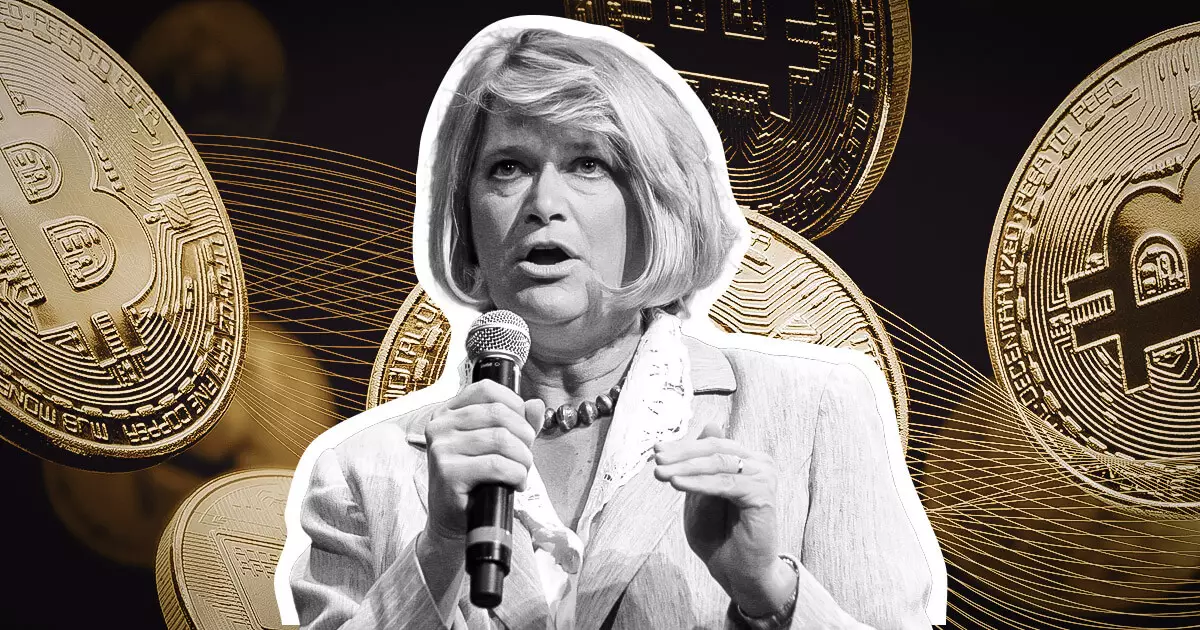Senator Cynthia Lummis has made headlines with her outspoken concerns regarding the potential liquidation of over 69,000 Bitcoins linked to the Silk Road investigation, as well as allegations of misconduct within the Federal Deposit Insurance Corporation (FDIC). Her two letters, directed to key US authorities, reflect not only her anger at what she sees as rash decision-making but also her advocacy for transparency in the management of the nation’s financial assets in the evolving landscape of digital currencies.
Lummis’s primary contention lies in the planned sale of the seized Bitcoins, which she argues could represent a unique opportunity for the United States. In her letter to Ronald L. Davis, the Director of the US Marshals Services, she expressed her concerns about the decision’s potential implications extending far into the future. Lummis emphasized that holding onto such digital assets could be instrumental in diversifying America’s financial portfolio, ultimately benefiting generations to come. The stark contrast between her perspective and the government’s inclination toward liquidating these assets illustrates a fundamental clash of interests—one that weighs short-term gains against long-term strategic benefits.
Citing the historical losses resulting from previous Bitcoin sales by the US Marshals Service, which amounted to $18.5 billion in unrealized gains for taxpayers, Lummis articulated her fears that the rushed sale of such significant assets would be a critical misstep. Her insights reveal a broader concern regarding fiscal responsibility and strategic planning in government actions, especially during transitional periods between administrations.
Moreover, Lummis pointed out the inconsistency with proposals put forth by President-elect Donald Trump for a “National Bitcoin Stockpile.” This initiative aimed to maintain government-held Bitcoins, indicating a potential policy conflict that could hinder coherent national strategy regarding digital assets. By voicing these apprehensions, Lummis has become a key advocate for a more measured approach to digital asset management, urging for comprehensive discussions that factor in not only economic volatility but also the lasting effects of liquidation.
Parallel to her concerns about the Bitcoin liquidation is Lummis’s aggressive stance against alleged wrongdoing within the FDIC. In a separate letter directed at Marty Gruenberg, Chair of the FDIC, Lummis demanded accountability related to claims that vital documents tied to the FDIC’s digital asset activities were being destroyed and that staff were facing intimidation for speaking out. In an era where transparency is essential for public trust, such allegations represent a grave threat to the integrity of federal operations.
Lummis asserted that the destruction of these documents—which could include anything from policies governing crypto-related banks to discussions with other regulatory bodies—summarily undermines the oversight required to navigate digital financial governance responsibly. Her directive to preserve materials connected with terms like “crypto,” “Bitcoin,” and “Ethereum” showcases her proactive approach toward ensuring that regulatory bodies do not stray away from their duties amidst changing financial dynamics.
The emphasis on avoiding retaliatory actions against whistleblowers underscores the importance of fostering a culture of open dialogue and accountability within federal agencies. By calling attention to the apparent need for protection of metadata and electronic information, Lummis is not only defending the rights of employees within the FDIC but is also advocating for a robust and transparent regulatory framework as the nation navigates the multifaceted digital asset landscape.
Senator Lummis’s letters encapsulate a profound concern for financial stewardship and accountability in governmental operations. Her high-profile advocacy encourages a broader conversation about how the United States manages digital assets, reflecting a need for strategic foresight that accommodates both innovation and risk management. By questioning the wisdom of liquidating significant assets during a period of market volatility and advocating for transparency in federal regulations concerning digital finance, Lummis is positioning herself as a leading figure in shaping future policies about digital currencies.
As the landscape of digital finance continues to evolve, the actions taken today by US authorities—particularly concerning Bitcoin holdings and digital asset regulatory frameworks—will have ramifications that could span decades. Senator Lummis’s clarion call for transparency, accountability, and thoughtful governance should resonate strongly within the halls of power as the nation seeks to carve out its future in an increasingly digital world.

